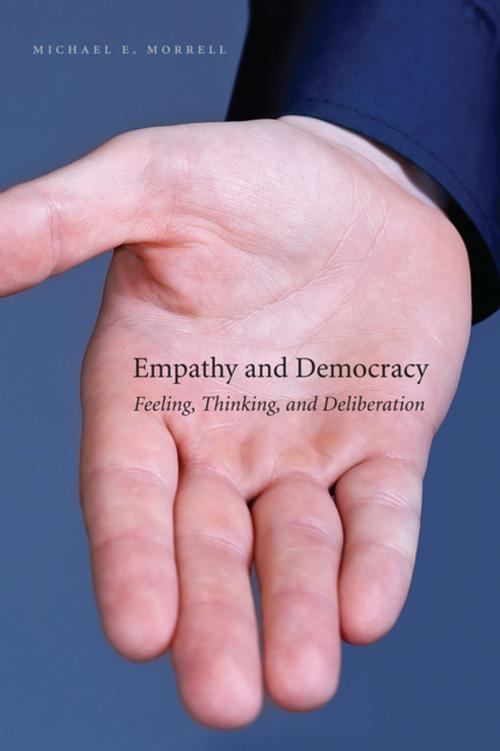Empathy and Democracy
Feeling, Thinking, and Deliberation
Nonfiction, Religion & Spirituality, Philosophy, Political, Health & Well Being, Psychology, Emotions, Social & Cultural Studies, Political Science, Politics, History & Theory| Author: | Michael E. Morrell | ISBN: | 9780271074351 |
| Publisher: | Penn State University Press | Publication: | April 26, 2010 |
| Imprint: | Penn State University Press | Language: | English |
| Author: | Michael E. Morrell |
| ISBN: | 9780271074351 |
| Publisher: | Penn State University Press |
| Publication: | April 26, 2010 |
| Imprint: | Penn State University Press |
| Language: | English |
Democracy harbors within it fundamental tensions between the ideal of giving everyone equal consideration and the reality of having to make legitimate, binding collective decisions. Democracies have granted political rights to more groups of people, but formal rights have not always guaranteed equal consideration or democratic legitimacy.
It is Michael Morrell’s argument in this book that empathy plays a crucial role in enabling democratic deliberation to function the way it should. Drawing on empirical studies of empathy, including his own, Morrell offers a “process model of empathy” that incorporates both affect and cognition. He shows how this model can help democratic theorists who emphasize the importance of deliberation answer their critics.
Democracy harbors within it fundamental tensions between the ideal of giving everyone equal consideration and the reality of having to make legitimate, binding collective decisions. Democracies have granted political rights to more groups of people, but formal rights have not always guaranteed equal consideration or democratic legitimacy.
It is Michael Morrell’s argument in this book that empathy plays a crucial role in enabling democratic deliberation to function the way it should. Drawing on empirical studies of empathy, including his own, Morrell offers a “process model of empathy” that incorporates both affect and cognition. He shows how this model can help democratic theorists who emphasize the importance of deliberation answer their critics.















